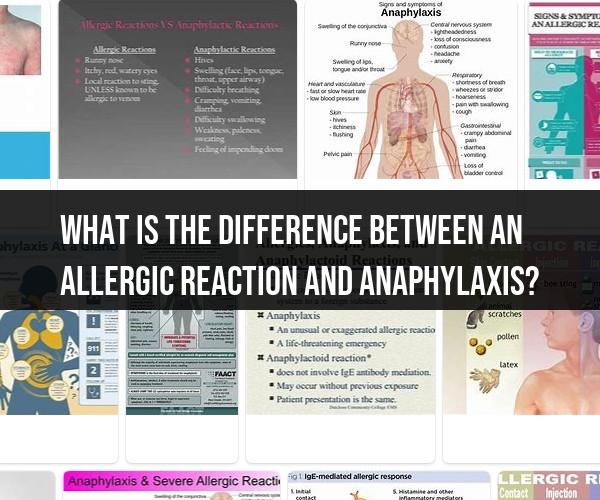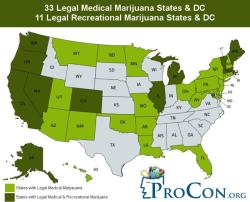What is the difference between an allergic reaction and anaphylaxis?
Allergic reactions and anaphylaxis are both immune system responses to allergens, but they differ in severity, symptoms, and potential consequences. It's important to understand the difference between these two conditions as they require different levels of medical attention. Here's a breakdown of the key distinctions:
Allergic Reaction:An allergic reaction occurs when the immune system overreacts to a harmless substance (allergen) that is typically not harmful to most people. Allergic reactions can vary in severity and may manifest as mild to moderate symptoms. Common allergens include foods, insect stings, medications, and environmental factors like pollen.
Symptoms of Allergic Reaction:
- Skin reactions: Rash, itching, hives
- Respiratory symptoms: Runny or stuffy nose, sneezing, coughing
- Eye symptoms: Watery, itchy, red eyes
- Gastrointestinal symptoms: Nausea, vomiting, diarrhea, abdominal pain
- Mild swelling of lips, face, or other body parts
- Generally, the symptoms are localized and do not affect the entire body.
Anaphylaxis:Anaphylaxis is a severe and potentially life-threatening allergic reaction that occurs rapidly and affects the entire body. It requires immediate medical attention. Anaphylaxis can lead to a sudden drop in blood pressure, difficulty breathing, and loss of consciousness. It can be triggered by certain foods, insect stings, medications, and other allergens.
Symptoms of Anaphylaxis:
- Difficulty breathing or shortness of breath
- Swelling of the throat and tongue, leading to airway constriction
- Rapid drop in blood pressure, leading to dizziness or fainting
- Rapid onset of severe skin reactions, including hives and itching
- Gastrointestinal symptoms, including severe nausea and vomiting
Key Differences:
Severity: Anaphylaxis is a severe, life-threatening reaction, whereas allergic reactions can range from mild to moderate.
Rapid Onset: Anaphylaxis typically has a rapid onset, often within minutes of exposure to the allergen. Allergic reactions may develop more gradually.
Involvement of the Whole Body: Anaphylaxis affects multiple body systems and can lead to widespread symptoms. Allergic reactions are often localized to specific areas.
Medical Emergency: Anaphylaxis requires immediate medical intervention, such as an injection of epinephrine (adrenaline), and follow-up care in a hospital. Mild allergic reactions may not require medical attention.
Risk of Fatality: Anaphylaxis can be fatal if not treated promptly. Fatalities from mild allergic reactions are extremely rare.
Treatment: Anaphylaxis requires epinephrine injection, antihistamines, and medical observation. Mild allergic reactions may be managed with over-the-counter antihistamines.
It's important to be aware of the signs and symptoms of both allergic reactions and anaphylaxis, especially if you have known allergies or are caring for someone who does. If you suspect anaphylaxis, call emergency services immediately and administer epinephrine if available.













